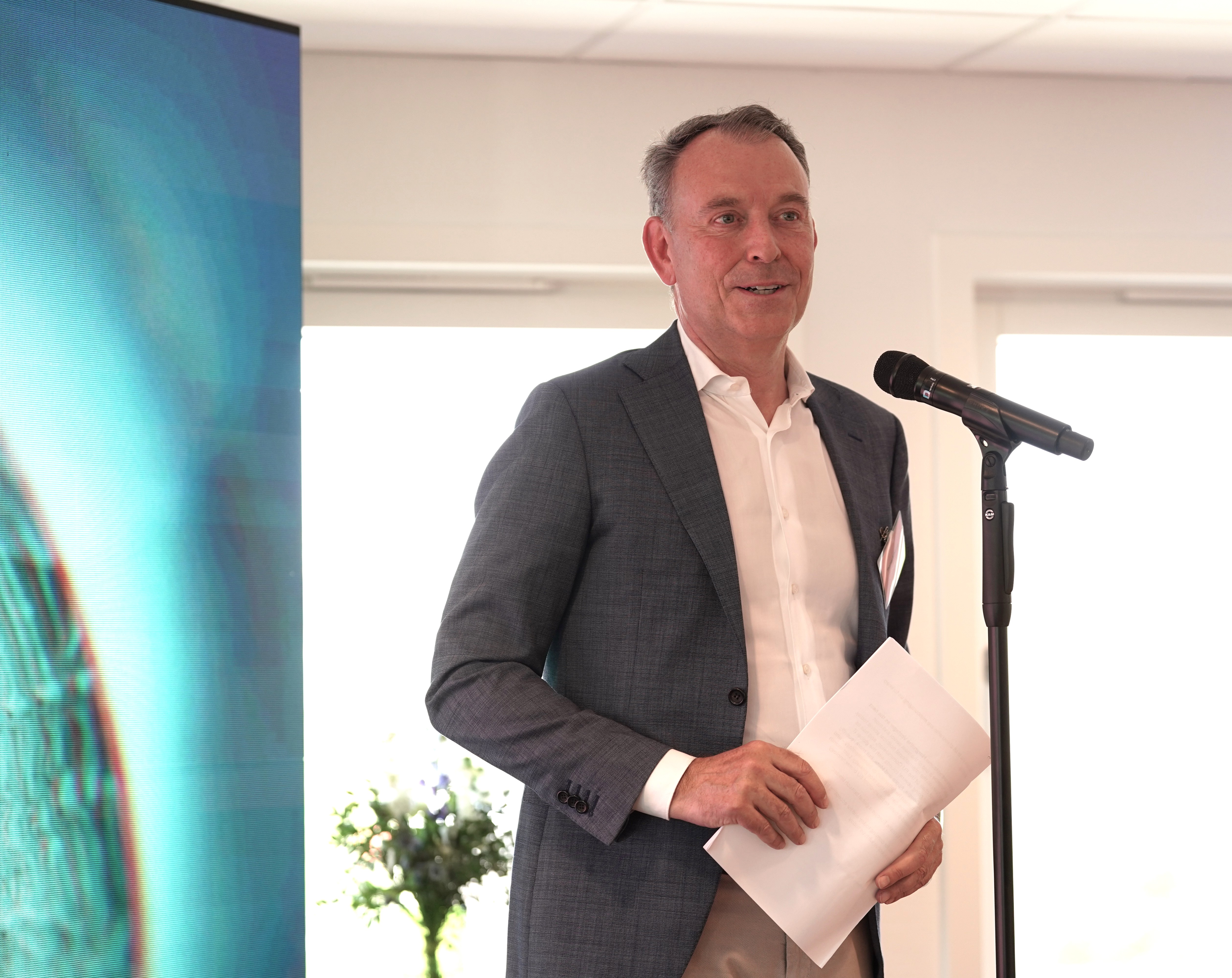How Distributed Bio CSO Jake Glanville is engineering the cell for the 21st century
For most of human history, we have furthered our knowledge about life by zooming in -- starting at the macro level and inching towards the micro. Although there are innumerable advancements that have facilitated progress to reach our modern scientific capabilities, the microscope and Human Genome Project have been two of the most groundbreaking because of the immense degree to which they unlocked mysteries of life on an infinitesimal scale. In fact, we have advanced to such an extent that over the last few years, the trend of research has switched directions. Scientists now tend to observe characteristics and make changes on a microscopic level to translate to certain behaviors on a much larger scale. From analyzing the microbiome to harnessing CRISPR to alter DNA, we now control scientific phenomena on a much more fundamental scale and have an enhanced toolkit in our hands.Generally, this new powerful set of micro-to-macro capabilities falls under the umbrella of cell engineering, a multidisciplinary approach to biology that utilizes conventional engineering principles to wield the cell as a “programmed machine” to address pressing problems and traverse novel frontiers. The field is relatively new and thus we have much to learn. “This is really exciting because the cell is such an intricate engine with lots of elements, so we can encode complex gated logic in behavior, making for more intelligent and smarter medicine than just individual molecules,” says Jacob Glanville, Ph.D., Founding Partner and Chief Science Officer of Distributed Bio, a South San Francisco-based biotech company. The company integrates computational immunology, bioengineering, and robotics to define a new paradigm in revolutionary bioengineered medicines by creating a pipeline of molecules with unprecedented biophysical properties.
Overcoming the challenges of engineering cells
Armed with significant industry expertise, particularly Distributed Bio’s advanced computational immunoengineering methods, Glanville identifies two significant challenges to overcome with cell engineering: understanding how the cell works and harnessing the tools to make cells do what you intend for them to do.Although it may seem counterintuitive given the multitude of innovations in biological sciences over the past few decades, we are very much “still on the learning curve of understanding how life works,” he says. “We’ve gained tremendous insight about the function of many of the genes in many organisms, but we’re still learning about regulatory processes that control how genes are . It is fair to say that we are pretty advanced in our ability to engineer individual proteins to do what we want, but that’s something that we will continue to learn and evolve to further our understanding of how life works.”Evolution certainly is a constant in science, whether about life itself or the technology we develop to deepen our knowledge of the way life works. In the past, cloning, electroporation, zinc-finger nucleases, and TALENS were some of the industry standards for editing DNA. However, CRISPR technology, based on manipulating bacteria’s immune mechanisms, has recently revolutionized this process.“We can use CRISPR to reengineer cells by cutting and pasting -- it’s easy to use,” says Glanville. “The old technology was impractical, but now these capabilities are within the reach of any laboratory and there’s been a huge proliferation ” he says, since we can now identify specific parts of the system that aren’t quite working the way we’d like --and maybe do this for thousands of cells simultaneously. CRISPR still has much ground to cover before it becomes a ubiquitously-accessible tool, considering not only scientific but also ethical challenges.At Distributed Bio, this evolution has manifested through advanced computational immunoengineering; scientists manipulate cells to rapidly generate large data sets to drive better-directed analysis to engineer optimal antibodies, T-cell receptors, and more, where almost one hundred million versions of the molecule exist. Glanville describes the company’s approach to cellular engineering as “working with specificity reagents.”Take chimeric antigen receptor T cell (CAR-T) therapy, for example. Distributed Bio harnesses advanced cell engineering techniques to find antibodies to bind to tumors, which clients then implement into new CAR-T therapies.“Because of our technology, we have the ability to conduct pretty advanced cellular engineering. We’ve created a whole library of over one hundred million CAR-Ts different types of receptors, so we can quickly search through it to find the CAR-T to bind to the target under specific engineering constraints,” Glanville says.
The future of cell engineering: cancer and beyond
As for what’s next in the field, the possibilities are almost limitless. “We’re going to move beyond making cells produce a new protein or small molecule to cells that have sophisticated logic circuits,” Glanville predicts. With these advanced decision-making capabilities, cells can possibly affect a variety of changes on tumors, modulate their impact based on treatment response, or even function as mini-surgeons that can be given complex instructions to more intelligently function -- making the stuff of science fiction reality.There is also a significant push to develop truly effective CAR-T against solid tumors, which Glanville believes is only the beginning of applications of cell engineering. “Further down the line, I see us exploring technology beyond just cancer. Maybe we can make a population of Tregs to protect autoimmune, diabetic, or arthritic patients. Anywhere you want to attack cells or regulate them, having a population of cells to do your bidding in the body is super valuable so people are working pretty much anywhere you can imagine along that spectrum,” he predicates. “We are only really limited by our understanding of how life works and good experiments to exploit that understanding.”As long as we keep pushing the envelope, the potential for cellular engineering will only continue to grow as it reaps enormous returns for humanity.Join us October 1-3 in San Francisco to see how synthetic biology is disrupting cell therapies. Register for SynBioBeta 2019: The Global Synthetic Biology Summit.




.svg)








-min.png)


.gif)